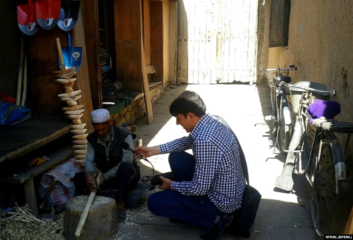
Radio Free Europe/Radio Liberty is noting the 20th anniversary of the relaunch of broadcasts to Afghanistan in the Dari and Pashto languages.
“RFE/RL’s broadcasts resumed less than five months after the September 11, 2001, attacks on the U.S. and nearly a decade after the Dari and Pashto services were closed down in 1993 as part of an overall restructuring of RFE/RL operations following the end of the Cold War,” the organization noted in a press release.
“Despite last year’s withdrawal of U.S. forces from Afghanistan and return of the Taliban to power, Radio Azadi continues to serve the Afghan people as a trusted and reliable source of news, analysis, and responsible discussion – on radio and, especially, on digital platforms.”
RFE/RL President Jamie Fly was quoted saying Radio Azadi has been “a trusted friend and partner to the Afghan people, in good times and bad.” He said the service’s work is important now “when so many of the achievements of the past twenty years are at risk.”
Radio Azadi marked the anniversary with a video report about the past 20 years, a photo gallery of journalists and a video of colleagues sharing experiences.
The organization said that its journalists “have endured death threats and other forms of harassment from Taliban and Islamic State forces, trends that intensified prior to the Taliban takeover.” It said four colleagues lost their lives in bombings in the past four years.
“The changing reality of producing journalism in Afghanistan forced RFE/RL to take dramatic steps to protect its staff, including the closure of its Kabul bureau, and evacuation of threatened local journalists from the country. Many former Radio Azadi staff remain in Afghanistan, ineligible for refugee status under U.S. government or international resettlement programs. Their situation remains highly tenuous.”






